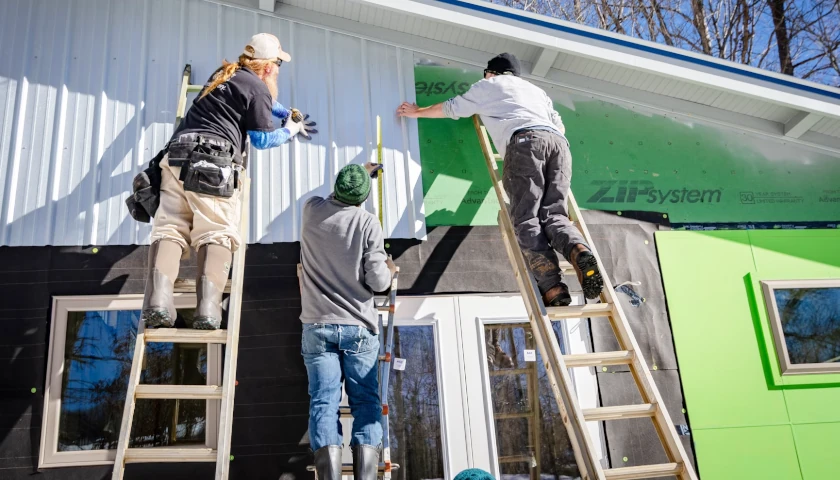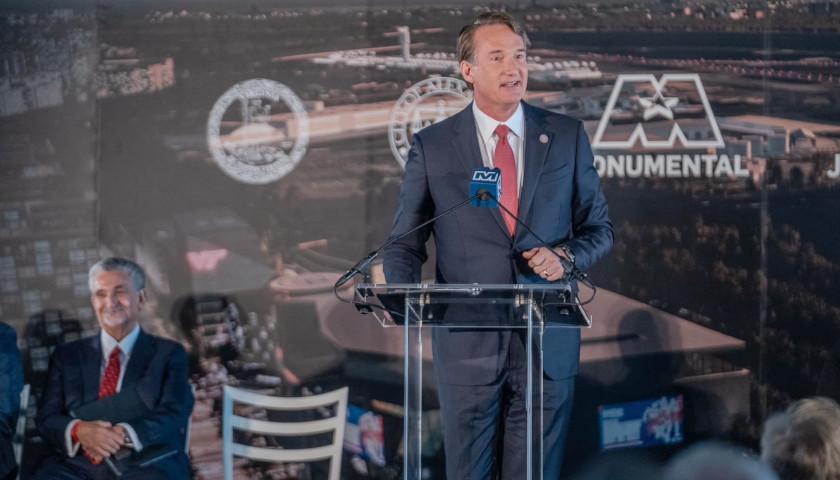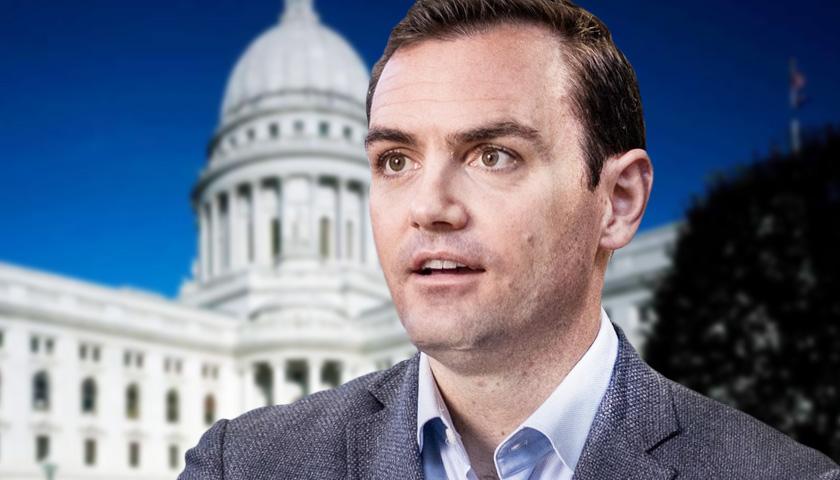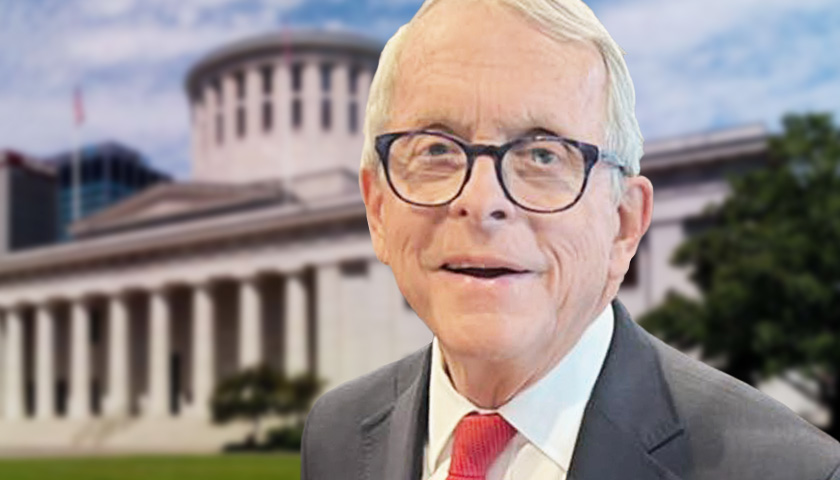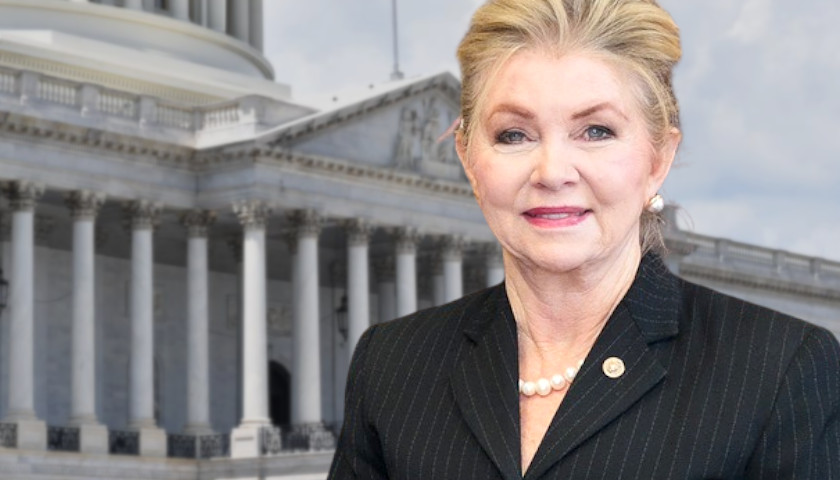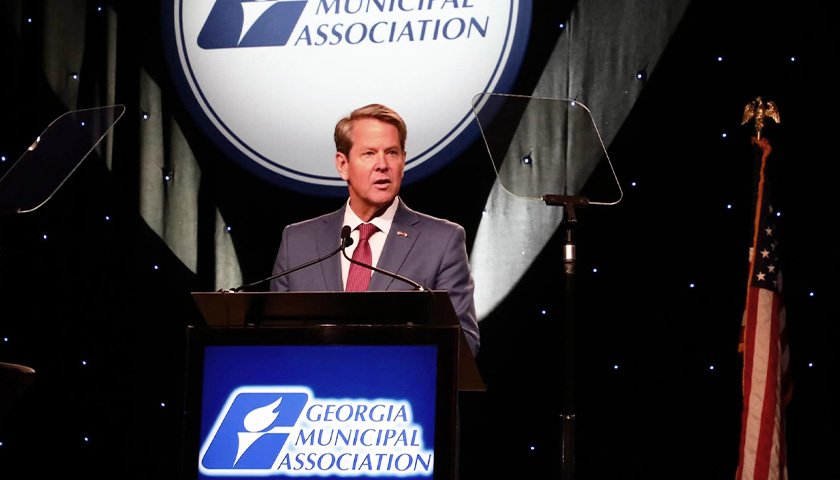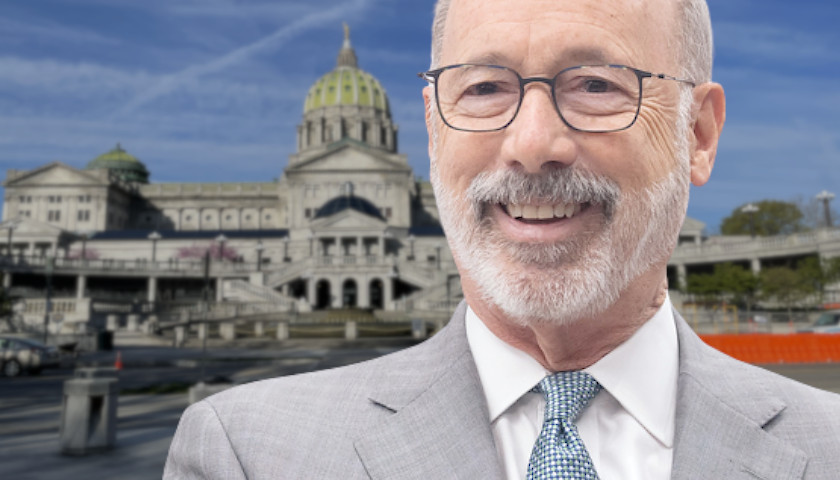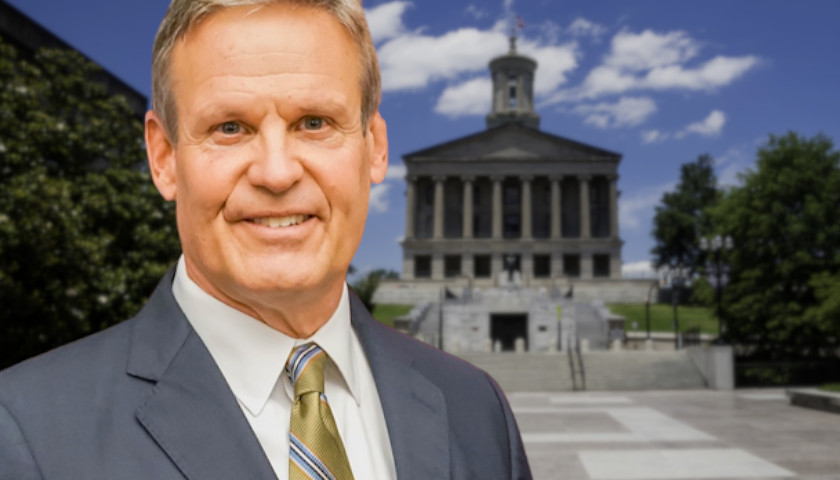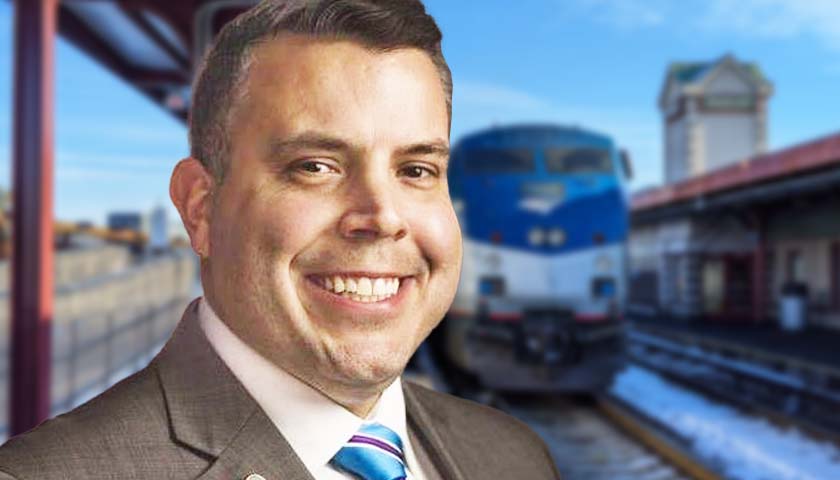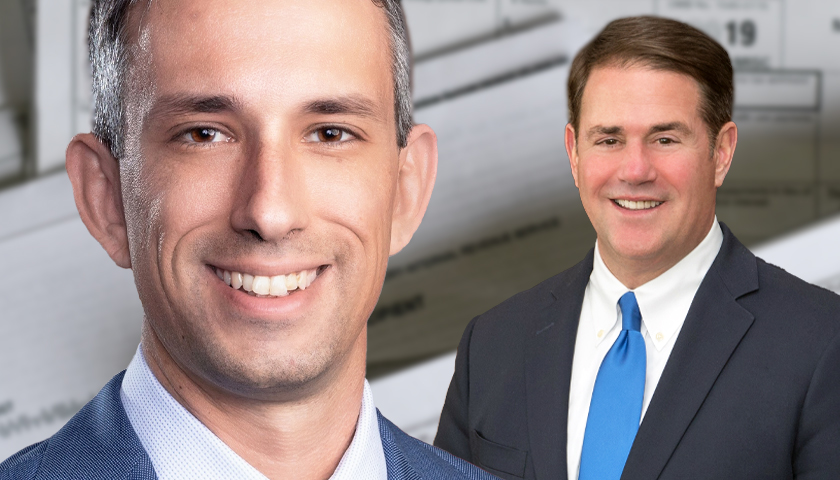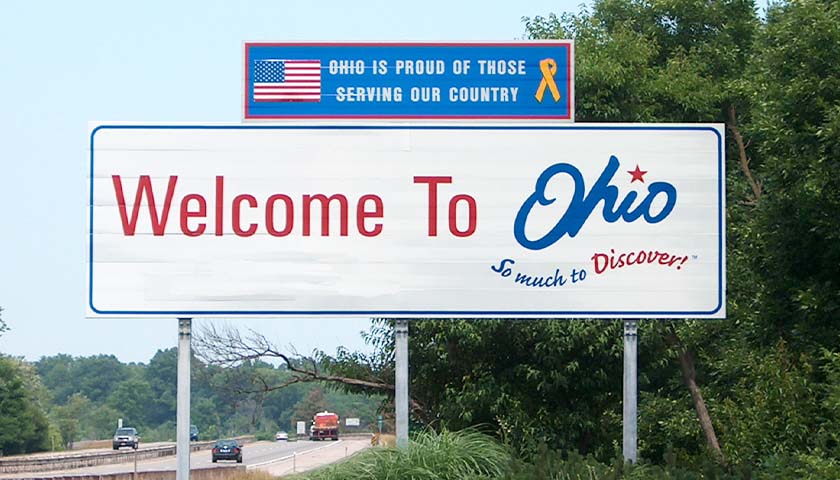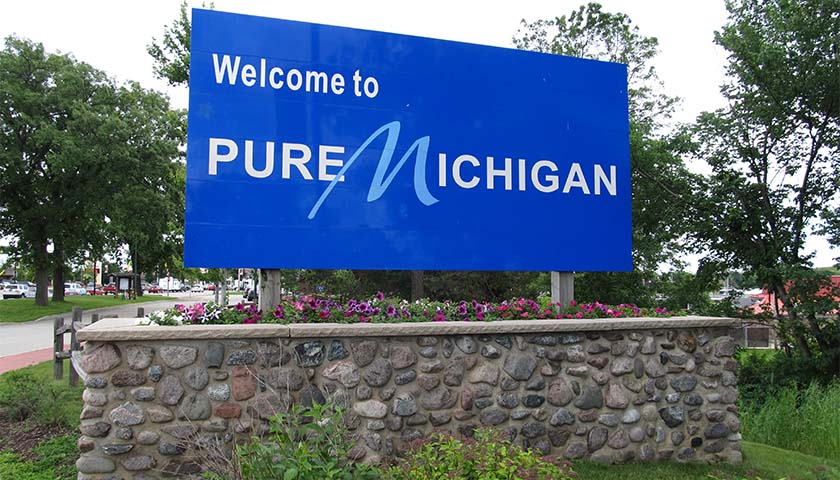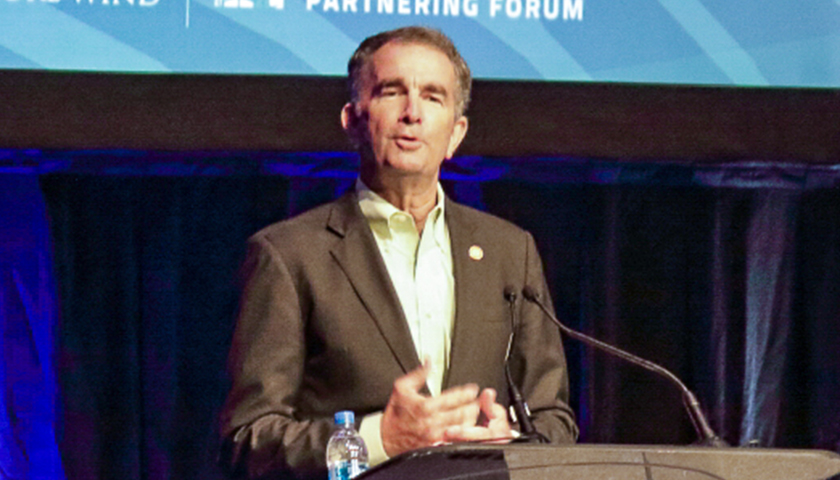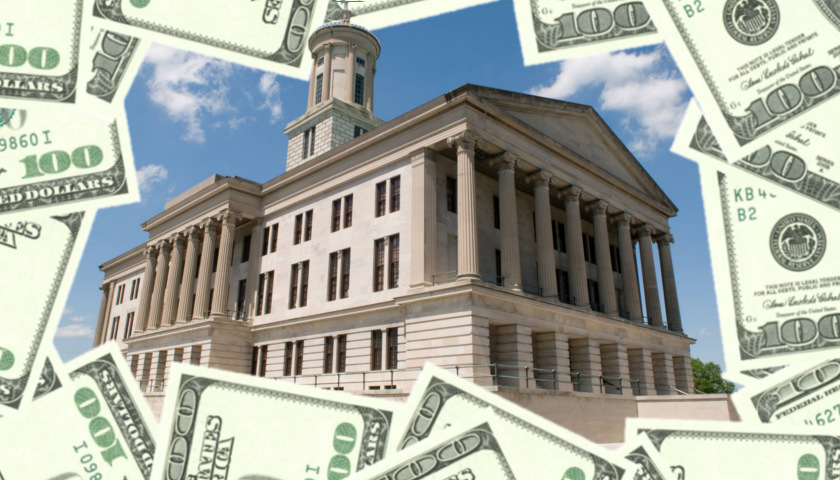Massive government-funded media outlets and other information powerbrokers are keeping Americans in the dark about the prevalence of illegal voting by non-citizens.
Read the full storyTag: Cato Institute
Commentary: The Corrupt Economics of Immigration
The common refrain among supporters of the Democratic Party’s open borders policy is that immigration helps the economy. A very recent example of this was published in MSNBC Daily last month, where the author, David Bier of the Cato Institute, claims that “The Congressional Budget Office finds that the surge will boost the economy by $7 trillion and reduce the federal debt by nearly $1 trillion by 2034.” That’s actually an unimpressive statistic since the cumulative GDP of the United States over the next decade will easily exceed $300 trillion, but Bier is probably not wrong in his assertion that immigration increases GDP.
Read the full storyVirginia Revitalization Commission to Pilot Workforce Housing Development
The Virginia Tobacco Region Revitalization Commission recently approved a pilot workforce housing program to make the region more attractive to new businesses and job seekers.
The commission was founded to foster economic growth and opportunity in 34 counties and six independent cities comprising Southwest and Southern Virginia – a region where tobacco farming was once integral to the economy. It’s funded entirely by proceeds from a major 1990s tobacco lawsuit settlement.
Read the full storyReport: Florida Receives Nation’s Second-Highest Grade for Religious Liberty
by Andrew Powell The Sunshine State ranks second in the nation for the protection of religious liberty, according to a new report from the Center for Religion, Culture and Democracy. The report, “Religious Liberty in the States,” is a project that measures legal safeguards for religious liberty across the U.S. During a panel discussion on the report, Jordan Ballor, director of research at CRCD, was joined by project director Mark David Hall and associate director Paul Mueller. A list of safeguards was used to measure and compare each state – including a state’s policies on absentee voting, general conscience, abortion refusal, sterilization refusal, contraception refusal, health insurance mandates, non-participation by clergy, religious entity refusal, public office recusal, for-profit business nonparticipation, clergy as mandatory reporters, houses of worship protected from closing, ceremonial use of alcohol by minors, religious freedom restoration act, childhood immunization requirements and excused absences for religious reasons. “Florida improved from number eight in the nation in 2023 to number two in 2024 because it passed general conscience and hospital protections,” Hall told The Center Square. “These laws ensure that medical professionals and institutions are not compelled to participate in medical procedures to which they have religious objections.”…
Read the full storyCalifornia Considers Rules That Could Push Gas Prices up an Additional $1.11/Gallon by 2026
California gas prices could rise by at least $1.11 per gallon by 2026 if the California Air Resources Board adopts amendments to its low carbon fuel standard program, CARB says. The LCFS amendments proposed at the end of 2023 would phase-out credits for turning manure into renewable natural gas, ending that business, and add jet fuel to LCFS purview, increasing flying costs for every flight that starts or ends in California even if the fuel was purchased elsewhere. Because so much of America’s imports come in through California, the LCFS amendments would raise the costs of goods for every American.
LCFS uses a system of credits and deficits to reward or punish producers that make fuel better or worse than the rising “clean” standard.” Current LCFS guidelines call for a 20% reduction in carbon intensity by 2030 compared to 2010, while the proposed amendments call for a 90% reduction by 2045, including significant step-downs starting in 2025 that would result in major fuel cost increases starting that year.
Read the full storyMounting Evidence Is Pointing to a Nightmare Scenario for the U.S. Economy
U.S. annual economic growth measured just 1.6 percent in the first quarter of 2024, following a report of persistently high inflation in March of 3.5 percent year-over-year. The combination of both low growth and high inflation, in conjunction with continuously high amounts of government spending and debt, has led to signs of stagflation in the U.S. economy, which wreaked havoc on U.S. consumers throughout the 1970’s, according to experts who spoke to the DCNF.
Read the full storyYoungkin Casts Doubt on Building Small Nuclear Reactor in Southwest Virginia
After months of research and investigation into what it would look like to build a small modular nuclear reactor in Southwest Virginia, Gov. Glenn Youngkin revealed the region may not be selected for Virginia’s first SMR after all.
“There may be other places around Virginia that may be better suited for the first one,” Youngkin said. “We’re looking at places across the commonwealth. I do firmly believe that Virginia will be the first state to have a small modular reactor in a commercial fashion.”
Read the full storyBiden Border Policy Critics Lament ‘Migrant Crime Wave’
House Homeland Security Committee Chairman Mark E. Green blasted President Joe Biden for the wave of illegal immigrants entering the U.S., saying a “migrant crime wave” is sweeping the country.
Green’s office said “President Biden and now-impeached Department of Homeland Security Secretary Alejandro Mayorkas’ refusal to secure the border has helped unleash a new wave of crime across the nation.”
Read the full storyRunaway Inflation ‘Unlikely’ to be Reeled in Under Biden Administration, Experts Say
by Will Kessler As long as President Joe Biden continues his high government spending policies, inflation is not likely to return to previously normal levels without seeing economic repercussions, according to experts who spoke to the Daily Caller News Foundation. The last time the Consumer Price Index (CPI), a measure of inflation, was below 3 percent year-over-year was in March 2021, two months after Biden took office, with the CPI last measuring at 3.7 percent for September, despite the Federal Reserve’s inflation target being just 2 percent, according to the Federal Reserve Bank of St. Louis. To return to the Fed’s target, which was common in the decade preceding Biden without difficulty or economic repercussions, the president would have to give up his high-spending policies that have been a signature of his economic policy, according to experts who spoke to the DCNF. “It is possible that inflation returns to 2 percent, but poor fiscal policy can make it much harder and more unlikely,” Jai Kedia, a research fellow in the Center for Monetary and Financial Alternatives at the Cato Institute, told the DCNF. “There’s an economic theory called the ‘fiscal theory of the price level’ and it suggests that a stable economy requires…
Read the full storyPennsylvania State Representatives Call for Federal Rail Safety Legislation
Three Republican Pennsylvania lawmakers are preparing to introduce a resolution calling on Congress to pass a new rail-safety statute in light of February’s train derailment in East Palestine, Ohio.
State Representative Jim Marshall (R-Beaver Falls) told The Pennsylvania Daily Star he is co-sponsoring the resolution to encourage an “all-in approach” to reduce the likelihood of freight-train accidents. State Representatives Natalie Mihalek (R-Pittsburgh) and Ryan Warner (R-Connellsville) spearhead the measure.
Read the full storyPennsylvania GOP State Lawmaker Proposes Freight-Train Length Limit
A Republican Pennsylvania lawmaker is urging colleagues to cosponsor state-level legislation to limit a freight train’s length to no greater than 8,500 feet.
State Representative Louis Schmitt, Jr. (R-Altoona) reasoned in a memorandum describing his proposal that the February 3 derailment in East Palestine, less than half a mile from Pennsylvania’s western border, shows current rail-safety requirements are inadequate.
Read the full storyPennsylvania Representatives Drafting Measure to Enhance Railroad Safety Rules
Two Pennsylvania state lawmakers representing areas affected by the February train derailment less than a mile beyond the Ohio border are drafting legislation to enhance railroad-safety rules.
The emerging bill by Representatives Jim Marshall (R-Beaver Falls) and Rob Matzie (D-Ambridge) would tighten maintenance and oversight standards for wayside hotbox detectors, limit the length of trains, set a minimum number of train staff, toughen supervision of railroad-safety compliance and facilitate reporting of violations. The legislators also say their measure will create a mechanism for better communication regarding the transportation of toxic substances.
Read the full storyWisconsin Congressman Gallagher Reintroduces Bipartisan Bill Targeting Over-budget, Behind-Schedule Projects
U.S. Representatives Mike Gallagher (R-WI-8) and Katie Porter (D-CA-47) are pushing for passage of their reintroduced Billion Dollar Boondoggle Act, a bill to publicize which federal projects are dramatically over budget or behind schedule.
The measure instructs the Director of the Office of Management and Budget (OMB) to generate an annual report on all projects that run at least $1 billion over initially authorized expenses or whose completion takes at least five years longer than originally scheduled.
Read the full storyOhio Enacts Universal Occupational License Recognition
Ohio Governor Mike DeWine (R) on Sunday signed legislation allowing Ohioans who acquired occupational licenses in other states to utilize their credentials in the Buckeye State.
Eighteen states, including neighboring Pennsylvania, already recognize occupational licenses that their residents received elsewhere. For years, a coalition of free-market organizations, including the Columbus-based Buckeye Institute, have urged Ohio lawmakers to adopt the same policy to ease burdens on workers and make the state more economically competitive.
Read the full storyBlackburn Releases New Video on the Economy, Discusses What Has Kept Tennessee Growing as Nation Struggles
Tennessee Republican Senator Marsha Blackburn is preparing to release a video via social media discussing the state’s economy and spoke with The Tennessee Star this week to discuss both the pressures it endures as well as its bright spots compared with other regions.
In the one-minute spot, which shows the senator touring a Clarksville-area manufacturing plant, she discusses the challenge ongoing inflation poses to producers as they attempt to provide affordable goods to Tennesseans.
Read the full storyOhio Mayors, Cities, and Planning Agencies Support Reconnecting the State Through Passenger Rail
In a display of support of passenger rail service in Ohio, a bi-partisan alliance of Ohio mayors in partnership with several of Ohio’s regional planning agencies, have formally requested the Federal Railroad Administration (FRA) to include a list of Ohio rail lines in its Corridor Identification Program (CAP).
According to FRA, the CAP, established earlier this year, institutes a pipeline of projects ready for funding, allowing them to be implemented faster and with greater coordination. The Corridor ID Program is anticipated to help expand intercity passenger rail service beyond the Northeast Corridor.
Read the full storyTennessee’s Blackburn and Green Take Biden to Task for 20-Year Mortgage-Rate High
Republican federal legislators from Tennessee blasted the Biden administration yesterday in light of the news that mortgage-interest rates have reached a two-decade high.
Government-sponsored mortgage corporation Freddie Mac reported this week that the 30-year fixed-rate mortgage — the option most homebuyers choose — hit 7.08 percent, exceeding seven percent for the first time since Spring 2002. The rate was 6.94 percent last week.
Read the full storyGeorgia’s Kemp Receives B Grade for Fiscal and Tax Policies
The Cato Institute gave Georgia Gov. Brian Kemp a B on its 2022 Fiscal Policy Report Card of governors, citing his tax cuts as a reason for the grade.
The libertarian think tank also gave Kemp, a Republican, a B on its 2020 report card. The analysis grades governors on their fiscal policies from a limited-government viewpoint; the higher the grade, the more a governor has cut taxes and spending.
Read the full storyFiscal Policy Report Card Gives Pennsylvania Low Grade
In a recent ranking of America’s governors, Pennsylvania’s Tom Wolf ranked at the bottom of the pack – 44th for his fiscal policies.
An annual fiscal policy report card from the Cato Institute, a libertarian think tank, graded the nation’s governors “from a limited-government perspective.” In their grading that emphasized lowering taxes and cutting spending, Wolf earned an “F.”
Read the full storyCato Institute Gives Governor Bill Lee ‘D’ Grade on State Fiscal Policy Report Card
The Cato Institute released its 2022 Fiscal Policy Report Card on America’s Governors on Wednesday, which grades the governors of all 50 U.S. states on their fiscal policies from a limited-government perspective.
According to its website, the Cato Institute is an American libertarian think tank that “promotes an American public policy based on individual liberty, limited government, free markets and peaceful international relations.”
Read the full storyPuskaric to Ask Pennsylvania Agencies to Ditch Social Media Platforms That Censor
Pennsylvania state Rep. Mike Puskaric (R-Jefferson Hills) indicated Wednesday he will urge state agencies to ditch social-media platforms he says engage in censorship.
In a memorandum asking fellow representatives to cosponsor his upcoming resolution, the Pittsburgh-area legislator argued that especially large information-technology companies violate the state and federal constitutions when they make politicized publishing decisions. He insisted government institutions and officials should respond by cancelling their accounts on such sites and signing onto more permissive online venues instead.
Read the full storyLegislators Announce Formation of ‘Train Travel Caucus’ in Support of Expanding Taxpayer-Subsidized Amtrak into Tennessee
During the House floor session Thursday, legislators announced the formation of the Train Travel Caucus in the Tennessee General Assembly, in support of expanding the taxpayer-subsidized National Railroad Passenger Corporation, known as Amtrak, into Tennessee.
The announcement came from a Democrat lawmaker, Representative Jason Powell (D-Nashville), who is the House sponsor of HB2278. The bill directs the Tennessee Advisory Council on Intergovernmental Relations (TACIR) to study within its existing resources the cost, feasibility and infrastructure of expanding railroad passenger service in the state through the National Railroad Passenger Corporation, doing business as Amtrak.
Read the full storyGov. Ducey Pushing Democratic-Sponsored Bill to Create an Earned Income Tax Credit in Arizona
Arizona doesn’t have an Earned Income Tax Credit (EITC), which mostly gives straight cash to those who don’t earn enough money to obtain a state tax refund, but Gov. Doug Ducey wants to change that. He is supporting SB 1018, sponsored by Senator Sean Bowie (D-Phoenix), which would create one, joining 30 other states which have adopted one patterned after the federal EITC.
A state EITC would take $74 million from the state’s coffers annually and give it to low earners. In order to qualify, income levels would face the same ceilings as the federal credit. Both families and singles are eligible, with a family of four children earning $20,000 maxing out the most with $325.
Read the full storyAs His First Cabinet Pick, Youngkin Names School Data Guru Aimee Guidera to Be Secretary of Education
Governor-elect Glenn Youngkin announced that Aimee Rogstad Guidera will serve as Secretary of Education. During the No Child Left Behind era, Guidera founded the Data Quality Campaign (DQC) which focuses on better data gathering to help improve school quality.
In his Monday press release, Youngkin said, “Aimee will be a critical partner in restoring expectations of excellence; overseeing a record education budget to invest in teachers, facilities and special education; rolling out innovation lab and charter schools; and standing for a curriculum that prepares Virginia’s children for a dynamic future and removes politics from the classroom.”
Read the full storyOhio Ranks Poorly in Terms of Freedom, Report Says
Ohioans are not as free as much of the rest of the nation, according to a new report released by the Cato Institute. And things are getting worse.
The report calls Ohio “thoroughly mediocre when it comes to freedom,” ranking the Buckeye State above average in fiscal policy but poorly on both regulatory and personal freedom issues. Overall, the report ranked the state 31st in the nation in terms of freedom, a spot lower than last year and two below its peak in 2016.
Read the full storyCATO: Michigan Seventh Freest State in the Nation
Michigan ranked 7th nationwide in the CATO Institute’s 2021 Freedom in the States report.
The rankings use 230 metrics to rank states on how their policies promote freedom in fiscal, regulatory and personal realms. The Wolverine state advanced two spots from 2018 and four since 2016.
Michigan’s tax burden is 5.9% of adjusted personal income, while government debt is now below average at 15.9% of income.
Read the full storyReport: Florida Named the Second-Freest State in U.S.
Only a state with the motto “Live Free or Die” is freer than the Sunshine State.
That’s according to the nonprofit CATO Institute’s annual Freedom in the 50 States report, which compares states based on different aspects of autonomy and choice in key policy areas. The report uses hundreds of variables to gauge states on fiscal, regulatory and personal terms.
Read the full storyAt Conference, Northam Says Virginia Is Ideal for Offshore Wind Industry
RICHMOND, Virginia — Governor Ralph Northam and Dominion Energy CEO Robert Blue announced that the Port of Virginia will lease 72 acres of the deep-water Portsmouth Marine Terminal for staging and pre-assembly of Dominion’s offshore wind project.
“This announcement is yet another milestone toward making Virginia the national leader in offshore wind power,” Northam said. “The Commonwealth and Dominion Energy are standing together to promote clean energy, reduce carbon emissions, create jobs, and build a new American industry on the East Coast of the United States.”
Read the full storyAdjunct Scholar at the Cato Institute and Author of Unschooled Kerry McDonald Talks About the Rise of Homeschooling and Debunks Myths
Tuesday morning on the Tennessee Star Report, host Michael Patrick Leahy welcomed author and an adjunct scholar at the Cato Institute Kerry McDonald to the newsmakers line to talk about her book Unschooled, homeschooling and the ever-changing way people are looking at educating their children in the home.
Read the full storyRural Oregon Counties Want to Secede from State to Join ‘Greater Idaho’
Conservative Oregonians are trying to leave the increasingly left-leaning state all together to preserve their values – but not by moving elsewhere. A group called Move Oregon’s Border is leading an initiative to have Oregon’s rural counties secede from the rest of the state and join Idaho, Fox News reports.
Mike McCarter, 72, a lifelong Oregonian, retired plant nursery worker and firearms instructor, has been leading the separatist movement for almost two years. He said he and many others are eager to “get out from underneath the chokehold of Northwestern Oregon.”
Read the full storyCommentary: Cato Forgets to Tell People This About the Jones Act
Good people still make bad mistakes.
One example is the Cato Institute’s attacks upon the Jones Act. The libertarian think tank should be appreciated for some other efforts, but not for its strident campaign to let foreign interests take over water transportation within the United States.
Read the full storyNew Census Data Show Migration to Low-Tax States
by Chris Edwards The Census Bureau has released new data on state population growth between July 2017 and July 2018. Domestic migration between the states is one portion of annual population change. The Census data show that Americans are continuing to move from high-tax to low-tax states. This Cato study examined interstate migration using IRS data for 2016. The new Census data confirms that people are moving from tax-punishing places such as California, Connecticut, Illinois, New York, and New Jersey to tax-friendly places such as Florida, Idaho, Nevada, Tennessee, and South Carolina. In the chart, each blue dot is a state. The vertical axis shows the one-year Census net interstate migration figure as a percentage of 2017 state population. The horizontal axis shows state and local household taxes as a percentage of personal income in 2015. Household taxes include individual income, sales, and property taxes. On the right, most of the high-tax states have net out-migration. The blue dot on the far right is New York with a tax burden of 13 percent and a net migration loss of nearly 1 percent (0.92) over the past year. On the left, nearly all the net in-migration states have tax loads…
Read the full storyNew Studies Explore Good, Bad, and Ugly on Tennessee’s Fiscal Health
Two different organizations released good and bad news Tuesday about Tennessee’s fiscal health. The Washington, D.C.-based Cato Institute called out Tennessee Republican Gov. Bill Haslam for “substantial spending increases in recent years.” The Mercatus Center at George Mason University, meanwhile, ranked Tennessee in the top five of the 50 states for good fiscal health. Cato’s Fiscal Policy Report Card on America’s Governor’s 2018 graded state executives on fiscal policies from a limited government point-of-view. Haslam scored a B on the 2016 report. This year, though, he earned a D, according to the report. “The state general fund budget rose 4.7 percent in 2017 and 9.8 percent in 2018. State government employment has been trending upwards since 2013,” the report said. The report mentioned how Haslam signed a bill increasing the state’s gas tax by 6 cents per gallon. He increased the diesel tax by 10 cents per gallon, all while increasing vehicle fees. The study, however, gave Haslam credit elsewhere. “In 2016, his big reform was repealing the ‘Hall tax,’ which was a 6 percent tax on dividends and interest,” according to the report. “Tennessee has no broad-based income tax, but it had this anti-savings levy. The reform reduces the…
Read the full storyCato Institute Expert: Nashville Mayor Megan Barry’s Mass Transit Plan ‘A Bad Investment’
A senior fellow with the Cato Institute is the latest expert to criticize Nashville Mayor Megan Barry’s $5.2 billion mass transit plan. The Cato Institute is a libertarian think tank based in Washington, D.C. Barry wants to raise taxes to pay for a light-rail network, improved and expanded bus service, and an underground tunnel downtown. Currently, the Music City Star connecting Lebanon and downtown Nashville is the only commuter rail service in the area. Randal O’Toole wrote an op-ed for the Wall Street Journal last week in which he criticized Barry’s plan for Davidson County, as well as mass transit proposals in San Antonio and Tampa. O’Toole wrote: These proposals are questionable at best and reckless at worst, given that transit ridership—including bus and what little rail these regions have—is down in all three jurisdictions. This is a nationwide trend: Data released this week by the Federal Transit Administration shows that ridership is falling in nearly every major urban area (with Seattle as a notable exception)… The main reason for this drop-off is that low gas prices and ride-sharing services have given people better options. Census data show that 96% of American workers live in households with at least one car,…
Read the full story


